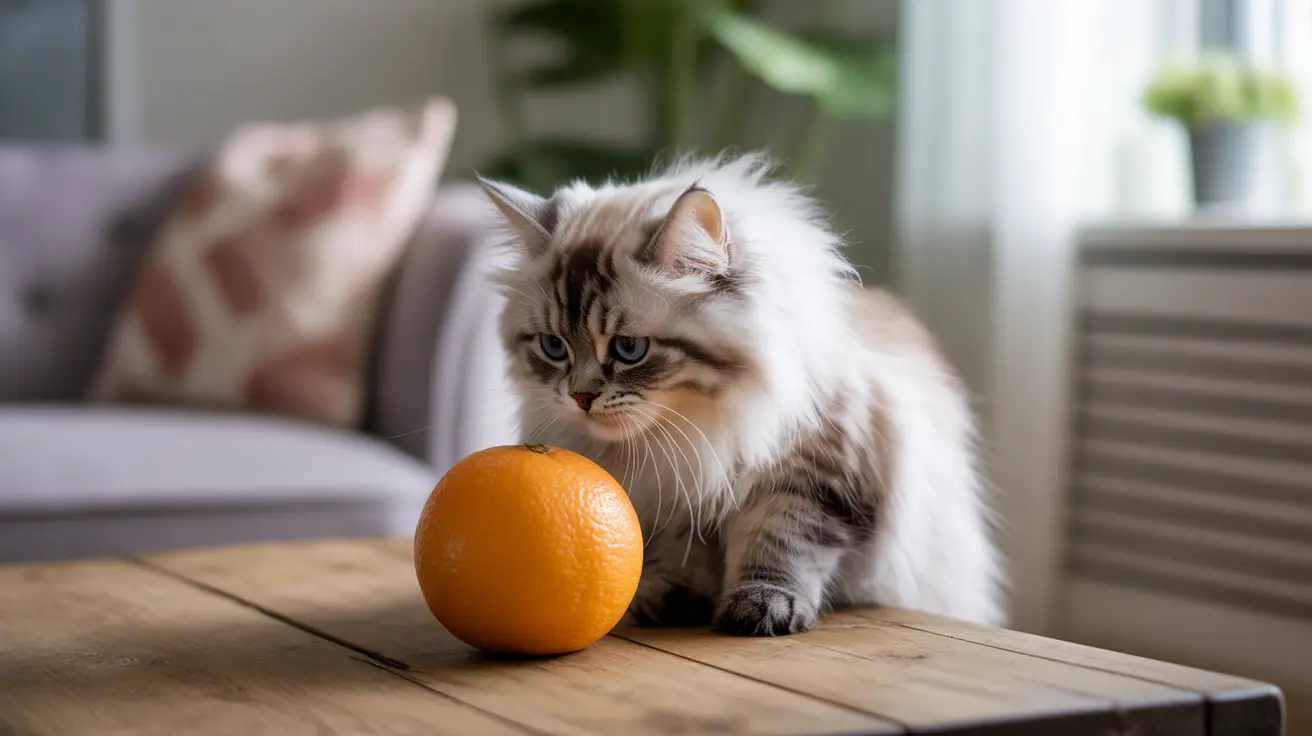Cats are fascinating creatures with an extraordinary sense of smell that's approximately 14 times more powerful than humans. This heightened olfactory ability means that certain scents can significantly impact their behavior and well-being. Understanding which smells cats hate isn't just trivia – it's essential knowledge for creating a comfortable environment for your feline friend and managing unwanted behaviors effectively.
In this comprehensive guide, we'll explore the various scents that cats find offensive, explain why they react this way, and discuss how you can use this knowledge to better care for your pet while avoiding potentially harmful substances.
Understanding Your Cat's Powerful Sense of Smell
Cats possess an impressive array of 80-200 million olfactory receptors, compared to our mere 5 million. This sophisticated sensory system helps them navigate their environment, identify threats, and make decisions about their surroundings. When we understand this enhanced sensitivity, it becomes clear why certain smells can have such a profound effect on our feline companions.
Common Scents That Repel Cats
Citrus and Fruit-Based Smells
Cats have a strong aversion to citrus scents, including lemons, oranges, limes, and grapefruits. The oils in citrus fruits are particularly potent and can be toxic to cats, which may explain their natural instinct to avoid these smells. Similarly, many cats show an aversion to banana scents, particularly when the fruit is very ripe.
Herbs and Spices
Many common kitchen herbs and spices are offensive to cats, including:
- Rosemary
- Lavender
- Mint and peppermint
- Thyme
- Curry
- Cayenne pepper
Household Products
Several everyday items contain scents that cats find disagreeable:
- Vinegar
- Essential oils
- Cleaning products
- Coffee grounds
- Tea leaves
- Perfumes and artificial fragrances
Potentially Harmful Scents to Avoid
Some smells that cats hate can also be dangerous to their health. Essential oils, particularly tea tree, eucalyptus, and peppermint, can be toxic if inhaled or absorbed through the skin. Always keep these substances safely away from your cat, and avoid using diffusers or sprays containing these oils in areas where your cat spends time.
Using Scent Aversion Safely
While you can use certain cat-repelling scents to protect furniture or keep cats away from specific areas, it's crucial to do so safely. Opt for natural deterrents like citrus peels or diluted vinegar rather than potentially toxic commercial products. Always ensure your cat has an escape route from any deterrent scents you use.
Creating a Cat-Friendly Environment
To maintain a comfortable space for your cat, consider these tips:
- Use unscented cat litter
- Clean with pet-safe, unscented products
- Keep strong-smelling foods properly stored
- Provide good ventilation in areas where your cat spends time
- Avoid using air fresheners or plugins in cat-accessible areas
Frequently Asked Questions
What smells do cats hate or find most repulsive?
Cats most strongly dislike citrus scents, vinegar, lavender, eucalyptus, and strong spices. These aversions are natural and help protect cats from potentially harmful substances.
How can I use smells to deter my cat from unwanted areas or behaviors?
You can safely use diluted vinegar, citrus peels, or commercial pet-safe deterrent sprays. Apply these to areas you want your cat to avoid, but always ensure they have alternative spaces to access.
What are the most toxic smells for cats, and how can I avoid them?
Essential oils (especially tea tree, eucalyptus, and peppermint), cleaning products, and artificial fragrances can be toxic. Keep these products sealed and stored away from your cat, and avoid using them in areas where your cat spends time.
Why do cats have a strong reaction to certain smells like citrus or onions?
Cats' heightened sense of smell makes them particularly sensitive to strong odors. Many of their aversions are actually protective instincts, as several of these substances can be harmful to them.
How can I create a comfortable environment for my cat by avoiding unpleasant odors?
Focus on using unscented products, maintain good ventilation, clean regularly with pet-safe products, and avoid using strong fragrances or essential oils in your home. Keep your cat's litter box clean and use unscented litter.
Conclusion
Understanding what smells cats hate is crucial for creating a safe and comfortable environment for your feline companion. By being mindful of these aversions and using this knowledge responsibly, you can better protect your cat while effectively managing their behavior. Remember to always prioritize your cat's well-being when using any scent-based deterrents or products in your home.






